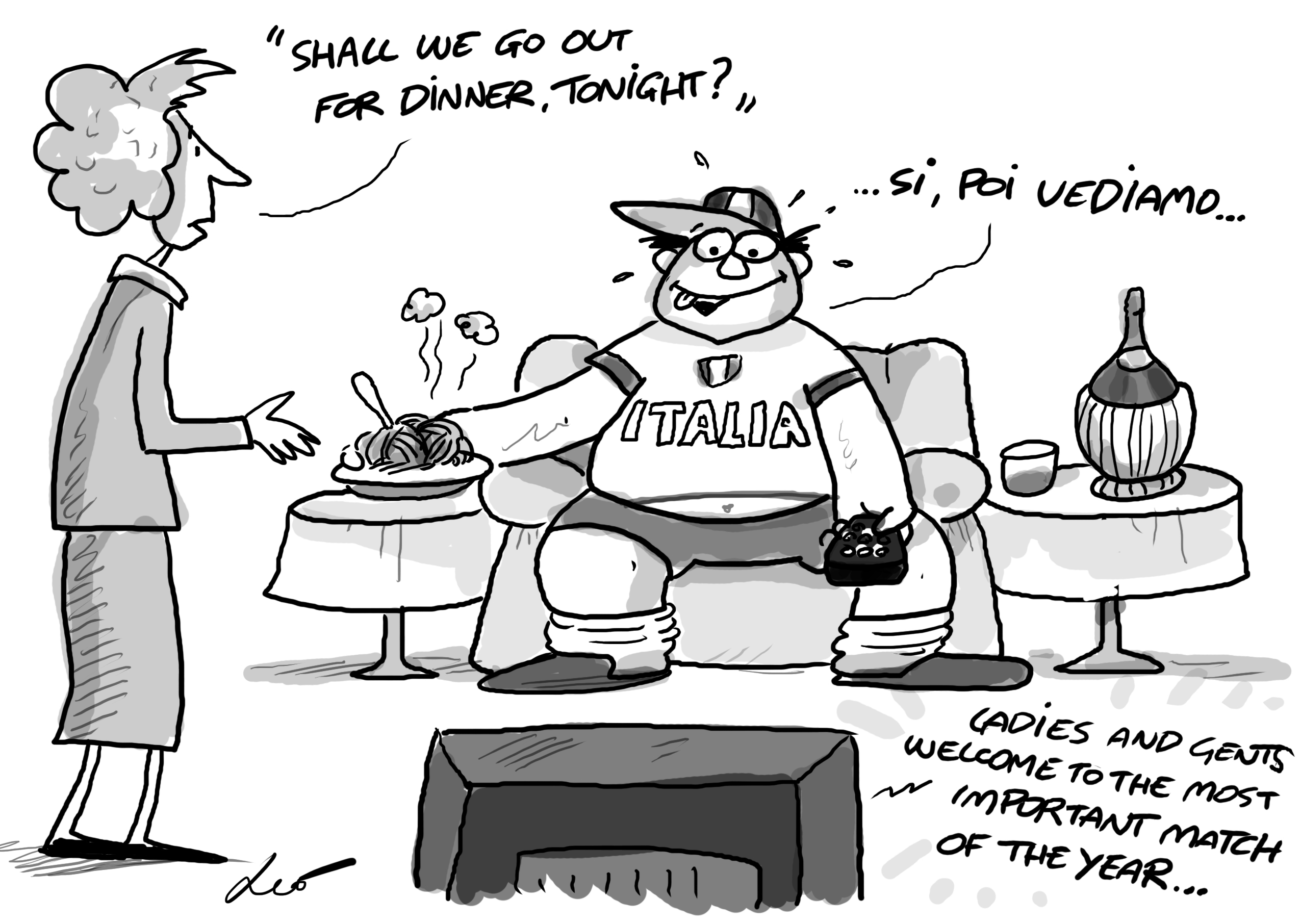Just relax. Take a deep breath. Abandon Plan A. Leave it at the bus stop before you mount bus 14. It’s already too crowded in there. Leave Plan A at the bottom of the stairs before you brave the five flights up to your room with a view. It’s heavy and you’ll have little use for it. On a good day in Italy, you’ll need plan B. Most days, though, you’ll be forced to trade all plans for poi vediamo. One of Italy’s most common expressions, “later, we’ll see,” keeps the door to adventure wide open.
Ask an Italian a clear-cut future-based question. Do you want to go out to dinner? Poi vediamo. Are we going to Arezzo this weekend? Poi vediamo. Will you be able to pick up the dry-cleaning? Poi vediamo. In Italy, it’s never as simple as yes or no. Dinner may happen. Arezzo might be possible. That errand may get accomplished. It isn’t safe to say just now. Later, the path will become clearer. After all, life does have its way of producing unexpected obstacles.
Don’t get me wrong. Italians are not spur of the moment people. They enjoy comfort too much. Most will not venture anywhere unless they know where they are going and what types of food they will find there. Poi vediamo does not mean “let’s do something spur of the moment.” Nor is it an expression of optimism suggesting that life is bursting with endless possibility, as in “the world is wide and wonderful so let’s not tie ourselves down to a plan.” Italians are far too fatalistic to suggest throwing caution to the wind and becoming free spirits.
The virtue of poi vediamo also does not lie in a genetic aversion to planned events. Generally speaking, Italians have no problem with thinking about the future. Most will invite you to make as many plans as you please. Just don’t be so foolish to have faith in them. Around here, plans will most likely produce unintended results. That’s the secret. Poi vediamo means “let’s have several plausible options and be willing to abandon them without the slightest raise of an eyebrow.” After all, in the Italian world one never knows what detours await the lowly adventurer.
You plan on doing your laundry this morning? You’re aiming to visit the bank? You want to scout out the market across town for shoes on sale? Certainly all worthy, if not ambitious goals. But have you considered the threat of a bus strike? Or what if the bank clerks have abandoned their desks in hopes of a raise? And laundry? What if the power goes out? What if you inadvertently use more than your legal share of household energy? Hair-dryer, radio, and washing machine all working at once may cause instantaneous black-out and then where would you be? No. In Italy, it’s best not to elude oneself with too many plans.
My friend Paolo is a Poi Vediamo Master. Otherwise he’s a pretty decent guy. Forcefully opinionated about useless theoretical issues, he is shamelessly non-committal when it comes to deciding anything practical. We argue often. Actually, I argue often. He usually just watches. Italians can never resist a good show. Once I am sufficiently worked up, he interrupts me and calmly states his case, “Uncertainty,” he says, “is the only thing Italians can really count on. And that’s not a bad thing. It adds thrill to life. It keeps us active and humble. Italy is the fifth richest nation in the world, but we could never be a super-power. Italians could never believe in actually having that much control over the state of the universe.”
“But I don’t want to know about the state of the universe,” I protest, “I want know if you’re coming to the movies. For once, give me a straight answer. Why does it always have to be poi vediamo?”
“Because I don’t know if the film will be possible.”
“Paolo, the movie is starting in 35 minutes— and if we’re going to go, vediamo NOW!”
As my impatience mounts, my friend tells me that part of the problem is grammatical. Italians use a present verb to express the future action. Poi vediamo is actually “later, we see.” There’s not a whole lot of room for planning in a language where tomorrow takes the present tense.
Despite my better judgement, I consider this linguistic possibility. As I do, I remember why we are friends. Paolo is bad at movie invitations and good at making up explanations. Unfortunately for me, I’m more entertained by explanations than I am by cinema.
When I tell him this, he is happy that I can recognise his virtues. “Of course,” he smiles, “in Italy, you can easily find satisfaction in both . We are infamous for one and famous for the other.”
Paolo never skips a beat. Maybe it is uncertainty that keeps the wit strong and the brain fit. It’s a theory that has never been proven, of course, but someday we’ll know the truth. Poi vediamo.









